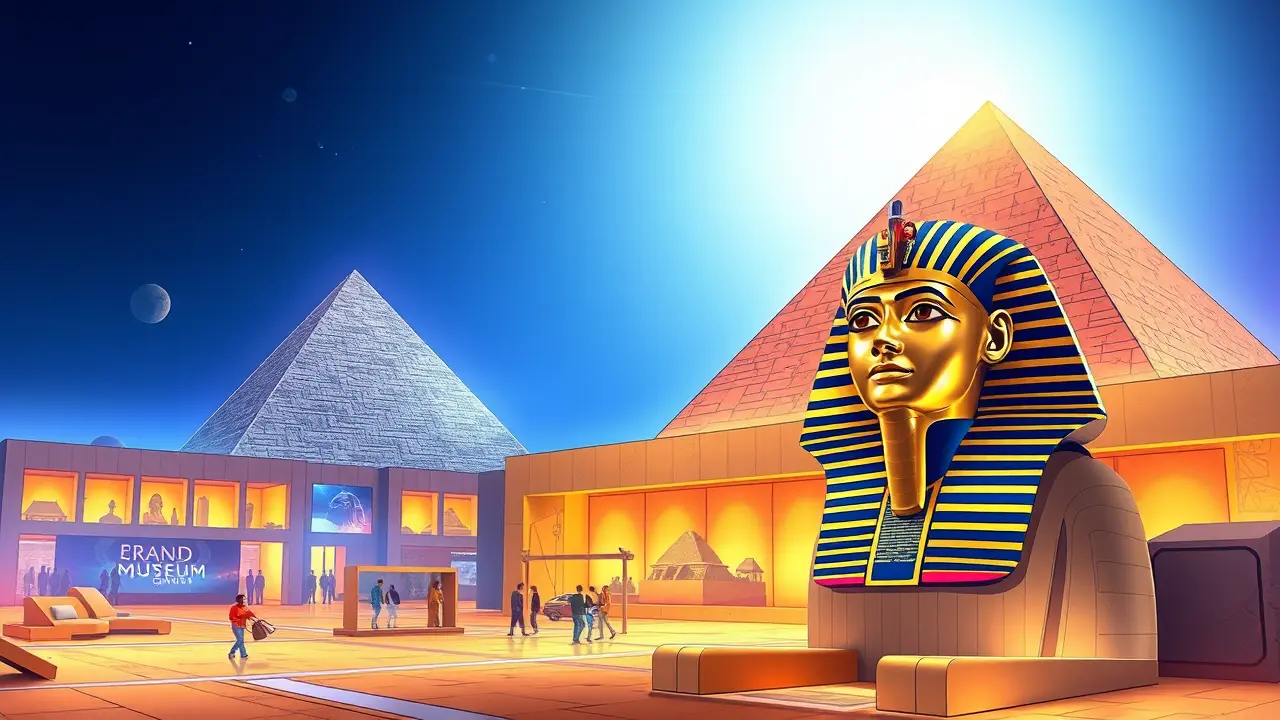
SciencearchaeologyExcavations and Discoveries
Egypt's Grand Museum Opens with Full Tutankhamun Tomb Display.
RA
Rachel Adams
1 day ago7 min read
The monumental opening of Egypt's Grand Museum, a billion-dollar architectural marvel poised at the foot of the Giza Plateau, represents far more than a new cultural destination; it is a profound statement of reclamation and identity, a deeply symbolic act in the long, contentious history of global antiquities. For the first time, the complete collection from King Tutankhamun's tomb—all 5,000 artifacts, from the iconic golden death mask to his intimate sandals—is assembled under one roof, a deliberate curatorial masterstroke that allows the boy king’s entire story to be told on the soil from which it originated.This unprecedented display, a full-century after Howard Carter’s world-shaking discovery, is not merely an exhibition but a powerful argument rendered in gold and stone, a visceral counter-narrative to the colonial-era dispersal of Egypt’s heritage. The very air in the vast halls seems to carry the weight of this reclamation, a sentiment echoed in the fresh, urgent calls from Egyptian officials and cultural advocates for the permanent return of foundational artifacts like the Rosetta Stone from the British Museum and the bust of Nefertiti from Berlin’s Neues Museum.These are not merely objects; they are linguistic keystones and cultural touchstones, their absence a lingering phantom limb for the nation. The museum itself, with its transparent facade framing the eternal pyramids, is a physical bridge between a majestic past and a sovereign future, designed to anchor Egypt’s narrative firmly within its own borders.This opening, therefore, ignites a complex global conversation that extends far beyond tourism, touching raw nerves of post-colonial restitution, museological ethics, and national patrimony. It forces institutions like the Louvre and the Metropolitan Museum of Art to confront the legacy of their acquisitions, compelling a long-overdue reckoning with the power dynamics that filled their Egyptian wings.The debate is no longer a niche academic concern but a mainstream geopolitical issue, fueled by a growing global consciousness and supported by UNESCO frameworks, placing immense moral and diplomatic pressure on Western museums. The Grand Museum’s inauguration is thus a pivotal event in the ecology of cultural heritage, a bold move that could accelerate the repatriation of countless other displaced artifacts worldwide, from the Parthenon Marbles to Benin Bronzes, signaling a decisive shift towards a more equitable and ethically coherent era of cultural stewardship.
#featured
#Egypt
#Grand Egyptian Museum
#Tutankhamun
#tomb
#antiquities
#repatriation
#archaeology
#cultural heritage
Stay Informed. Act Smarter.
Get weekly highlights, major headlines, and expert insights — then put your knowledge to work in our live prediction markets.
Comments
It’s quiet here...Start the conversation by leaving the first comment.
© 2025 Outpoll Service LTD. All rights reserved.